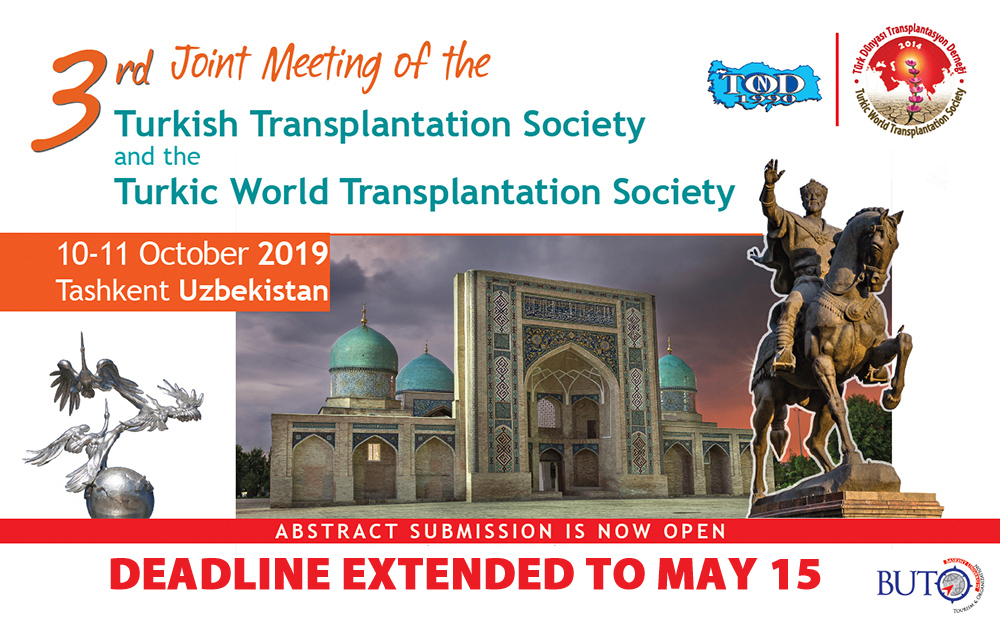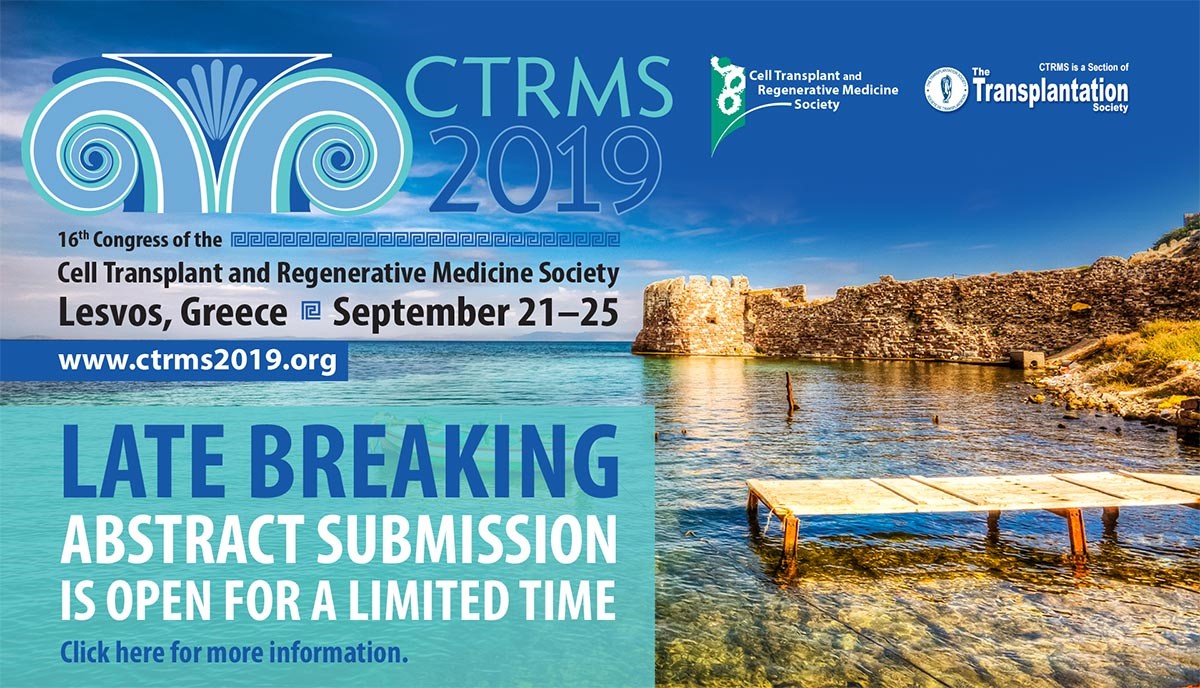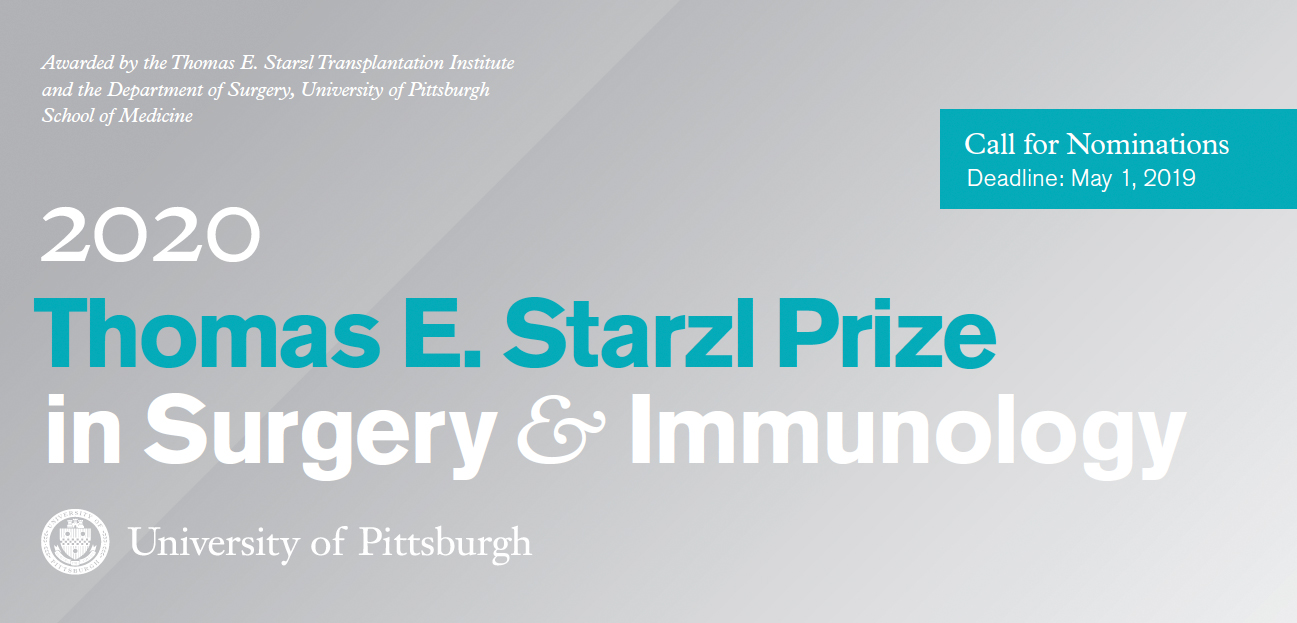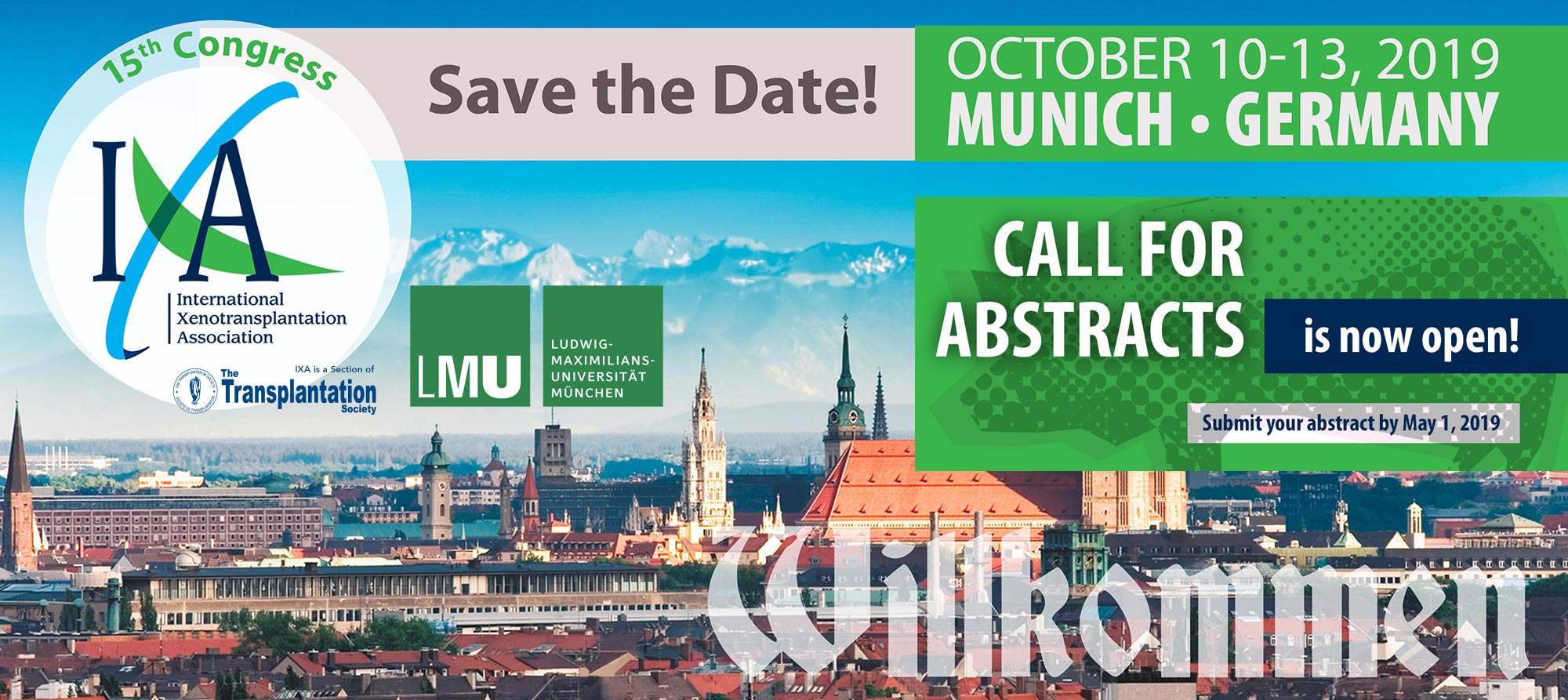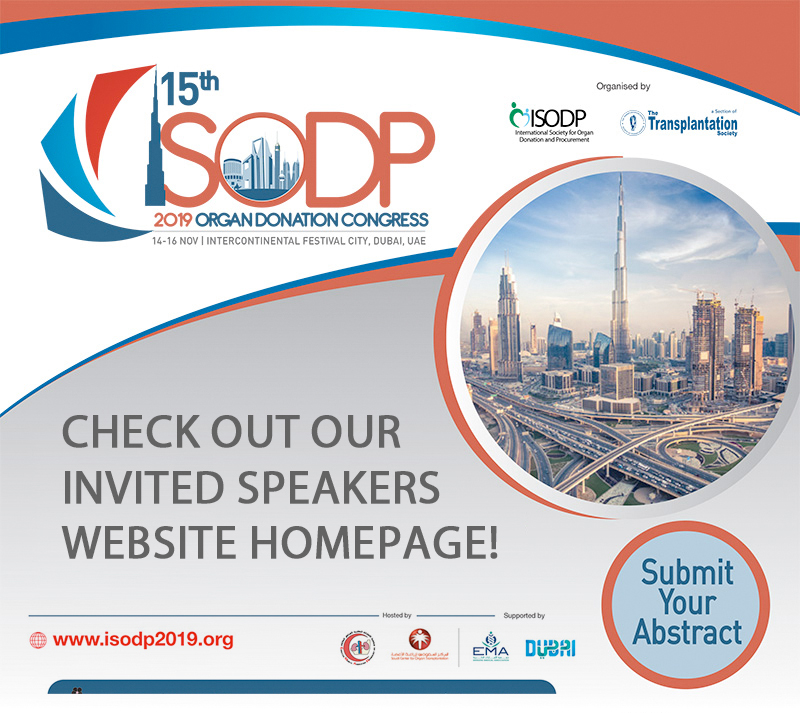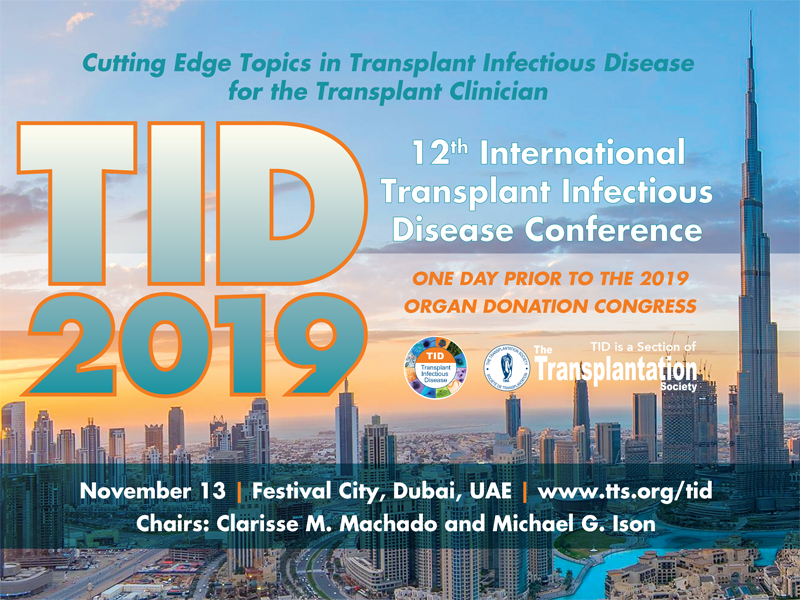
IN THE NEWS - HIGHLIGHTED ARTICLES
Researchers 3D-print heart from human patient's cells
April 16 - Researchers have 3D-printed a heart using a patient's cells, providing hope that the technique could be used to heal hearts or engineer new ones for transplants.
CRISPR is now being used on humans in the U.S.
April 17 - The first U.S. trial of CRISPR in humans has begun, NPR reported Tuesday. Two patients are currently being treated as part of a University of Pennsylvania study. Per NPR, both have difficult-to-treat forms of cancer and both have relapsed after regular treatments. As part of the trial, researchers are taking immune cells from the patients' own bodies and editing them with CRISPR before putting them back in. The hope is that these edited cells will be better at identifying and attacking the cancer than their unaltered counterparts.
Biophotonic therapy eliminates bacteria and viruses from organs before transplantation
April 11 - A new technique for the decontamination of organs before transplantation using ultraviolet and red light irradiation has been developed by Brazilian and Canadian researchers and is described in an article published in the journal Nature Communications.
TTS NEW WEBINAR SERIES

The Education Committee of TTS will be continuing its webinar series on the "Trends and Challenges in Liver Transplantation."
TOPIC: Acute Liver Failure
TITLE: Medical and Surgical Aspects of Acute Liver Failure
Wednesday, April 24, 2019 - 3:00 PM EDT (Montreal time)
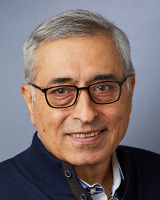 |
Organizer and Moderator: Sukru Emre, MD Professor of Surgery (Transplant) and of Pediatrics, Yale University New Haven, CT, USA |
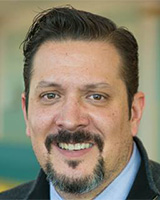 |
Discussant: Manuel Rodriguez-Davalos, MD, FACS Transplant and Hepatobiliary Surgery Primary Children's Hospital - Intermountain Medical Center Salt Lake City, UT, USA |
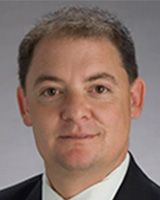 |
Discussant: Jody C. Olson, MD, FACP |
TRANSPLANTATION - HIGHLIGHTED ARTICLE
Dr. Joel Thomas Adler, Editorial Fellow, Transplantation
Outcomes of Pancreas Transplant Recipients With De Novo Donor-specific Antibodies
Parajuli S, Alagusundaramoorthy S, Aziz F, et al.
Transplantation. 019 Feb;103(2):435-440.
Currently, there is little information available on the outcomes of pancreas transplant recipients with de novo donor-specific antibody (DSA). In this single institution study, 22% of recipients(PTA, PAK, SKP) developed de novo DSA: 32% against HLA class I, 56% against HLA class II, and 12% against both. De novo DSA in pancreas transplant recipients was associated with increased rates of rejection and graft failure, suggesting that a screening protocol may in fact improve detection of rejection and lead to better outcomes.
IMMUNOLOGY AND HLA UNIT IN KUWAIT HOLDS ITS FIRST SYMPOSIUM WITH A SPEAKER FROM TTS COUNCIL
In Collaboration with Kuwait Transplant society, the Immunology and HLA unit at Kuwait Cancer Center held its first symposium under the title: Transplant Immunology symposium: A Diagnostic perspective. The event was held on 7th April 2019 At AL Jumeirah beach hotel, Kuwait.
The organizing committee put together a vibrant program that attracted nephrologists, transplant surgeons, cardiologist, hematologists, transplant coordinators, nurses and medical technologists. The event which was organized by Dr. Nada Al-Shatti, Director of Immunology and HLA Unit in Kuwait Cancer Control Center, encompassed topics about the advances in HLA diagnostics, hematopoietic stem cell transplantation in Kuwait and the clinical integration of transplant immunology diagnostics. The sessions also included topics about the importance of virtual crossmatching and establishing a successful paired kidney exchange program.

The speakers were Dr. Medhat Askar, TTS Councilor and Director of Transplant Immunology at Baylor University Medical School, Dr. Maitham Husain, Director of NBK Children's Hospital in Kuwait and Mr. Fadi Al Zayer, President of Arab Society for Histocompatibility and Immunogenetics.

Dr. Mustafa Al-Mousawi, TTS Councilor and president of Kuwait Transplant Society co-chaired the symposium with Dr. Al-Shatti.
ABSTRACT SUBMISSION NOW OPEN!
The 3rd Joint Meeting of the Turkish Transplantation Society and the Turkic World Transplantation Society will be held in Tashkent, Uzbekistan on October 10-11, 2019. The Scientific and Local Organizing Committees, comprised of international transplantation leaders, have developed a program that reflects current problems and represents a collection of scientific, educational, and practical information. The meeting will be an exciting opportunity for transplant professionals to share their expertise as well as their concerns regarding the development of the field in their own countries. Please visit the website http://tond-tdtd2019.com/en/ for full details.
IN THE NEWS
Living transplant donors need long-term monitoring, too
April 10 - While organ transplant recipients receive continual care as the end-stage treatment to their condition, attention also should be given to living donors, who can suffer from hypertension, diabetes and other disorders after donation, according to a study by researchers at UC San Francisco.
The forgotten side of CKD: kidney disease triggers cognitive impairment, even in early stages
April 10 - Chronic kidney disease (CKD) is increasingly recognized as a systemic condition. It also impacts upon other organ systems and in recent years much attention has focussed specifically on the link between the kidneys and the heart. There is also an association between brain dysfunction and kidney disease; new data shows that even mild CKD correlates with impairment of cognitive function. A new review by Professor Giovambattista Capasso summarizes the current evidence in this field.
First birth after robot-assisted uterus transplant
April 9 - A boy is the first baby born after the technological shift on uterine transplantation. The birth, with the planned cesarean delivery (C-section), took place on Monday, April 8th, and the whole family is doing fine.
Israeli hospital performs first-ever live vein transplant
April 14 - Surgeon at Hadassah University Medical Center in Jerusalem does unprecedented vein transplant to save the life of 60-year-old Israeli Avi Yavetz.
Researcher reports skin properties that may limit cancer and aid stem cell regeneration
April 16 - Two images published in a Cell Stem Cell paper in September 2018 summarize years of relentless questioning on how skin stem cells regenerate, which has driven much of the research of Valentina Greco, Ph.D., Carolyn Walch Slayman Professor of Genetics and professor of cell biology and of dermatology, and her lab members.
UPCOMING MEETINGS AND ANNOUNCEMENTS
IPTA 2019 - MAY 4-7, 2019 - VANCOUVER, CANADA
The International Pediatric Transplant Association has put together an amazing program for their upcoming meeting in early May featuring world-renowned speakers. Check out the detailed program on the website!
IPITA 2019 LYON - FRANCE
Registration is open and preliminary program are both available.
2019 TTS TRANSPLANTATION SCIENCE COMMITTEE NEWS
HOLD THE DATE - NOVEMBER 10-13, 2019
ITS 2019 is set for Nov. 10-13 in Clearwater Beach, Florida. Keynote speakers include Katherine High, President and Head of R&D at Spark Therapeutics, and Ronald Germain, chief of Laboratory of Immune System Biology and Lymphocyte Biology Section at the National Institute of Allergy and Infectious Diseases National Institutes of Health.
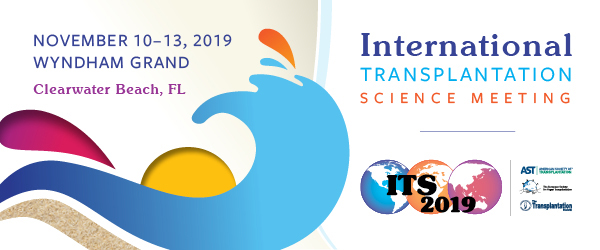
TID2019 - SAVE THE DATES!
PRE-MEETING TO ISODP 2019 - SAME VENUE ...ONE DAY PRIOR!
Contact
+1-514-874-1717
This email address is being protected from spambots. You need JavaScript enabled to view it.
Address
The Transplantation Society
International Headquarters
505 Boulevard René-Lévesque Ouest
Suite 1401
Montréal, QC, H2Z 1Y7
Canada





